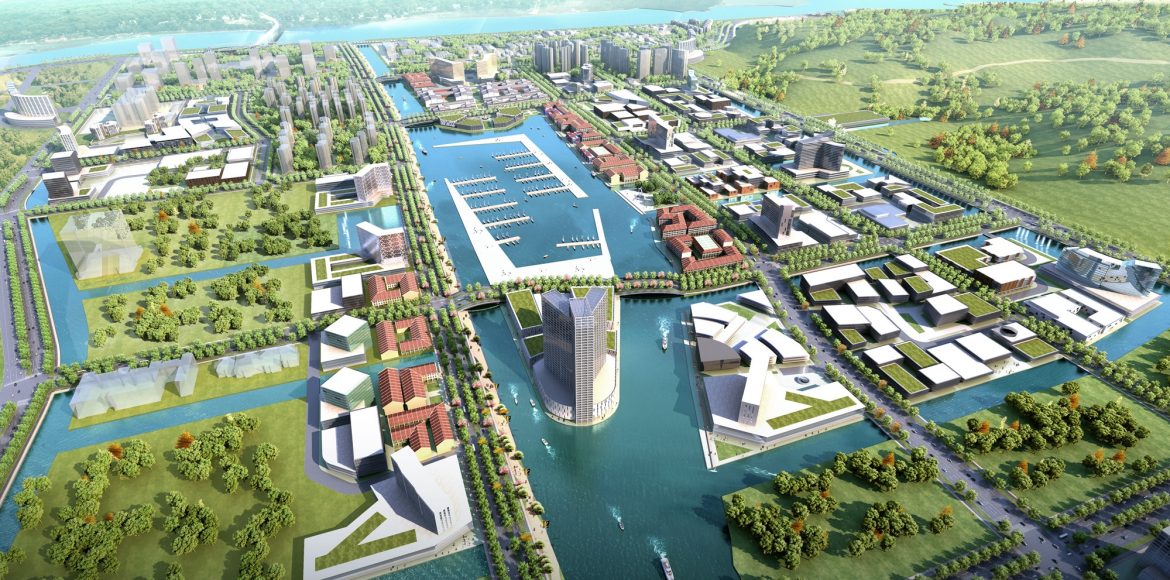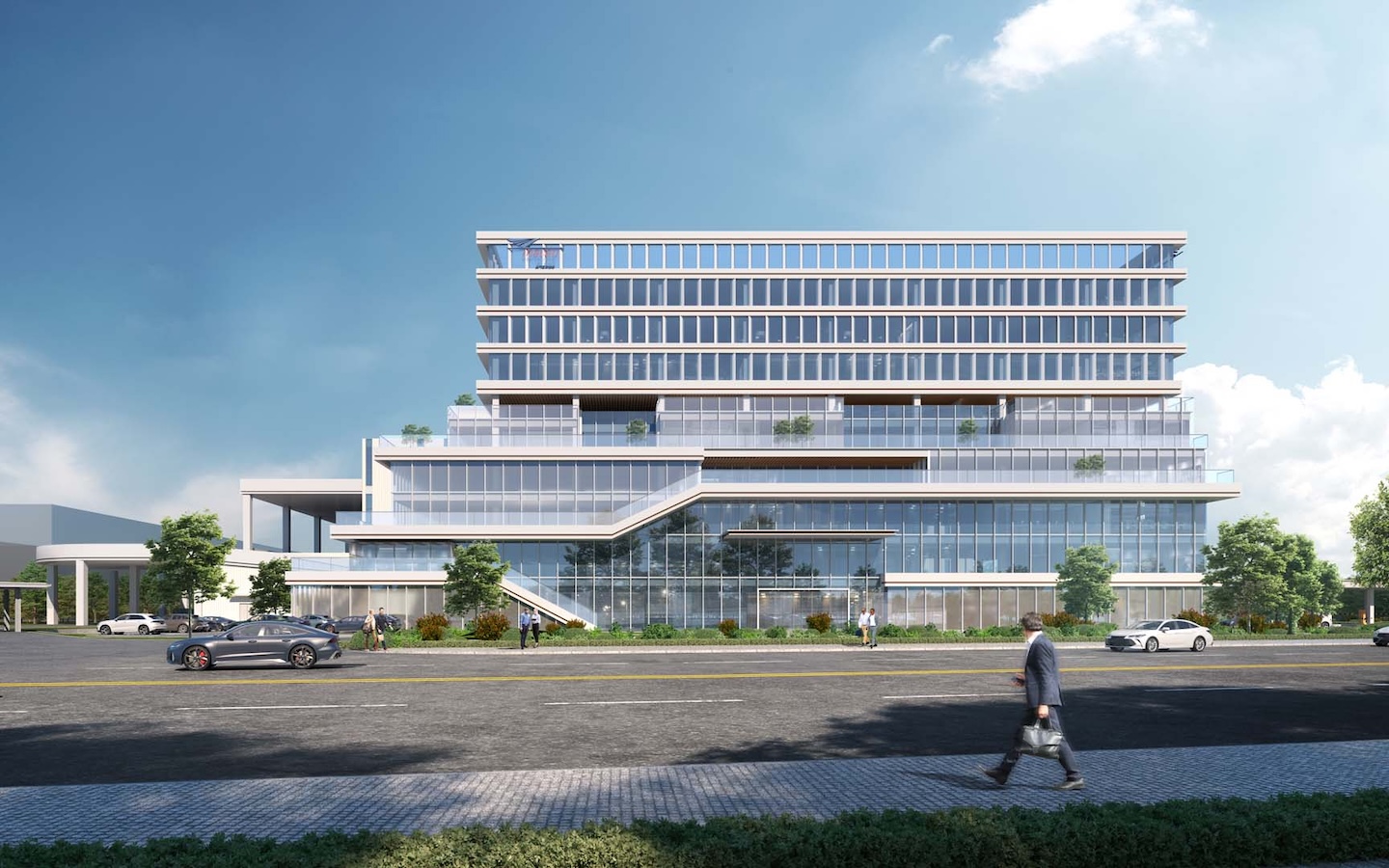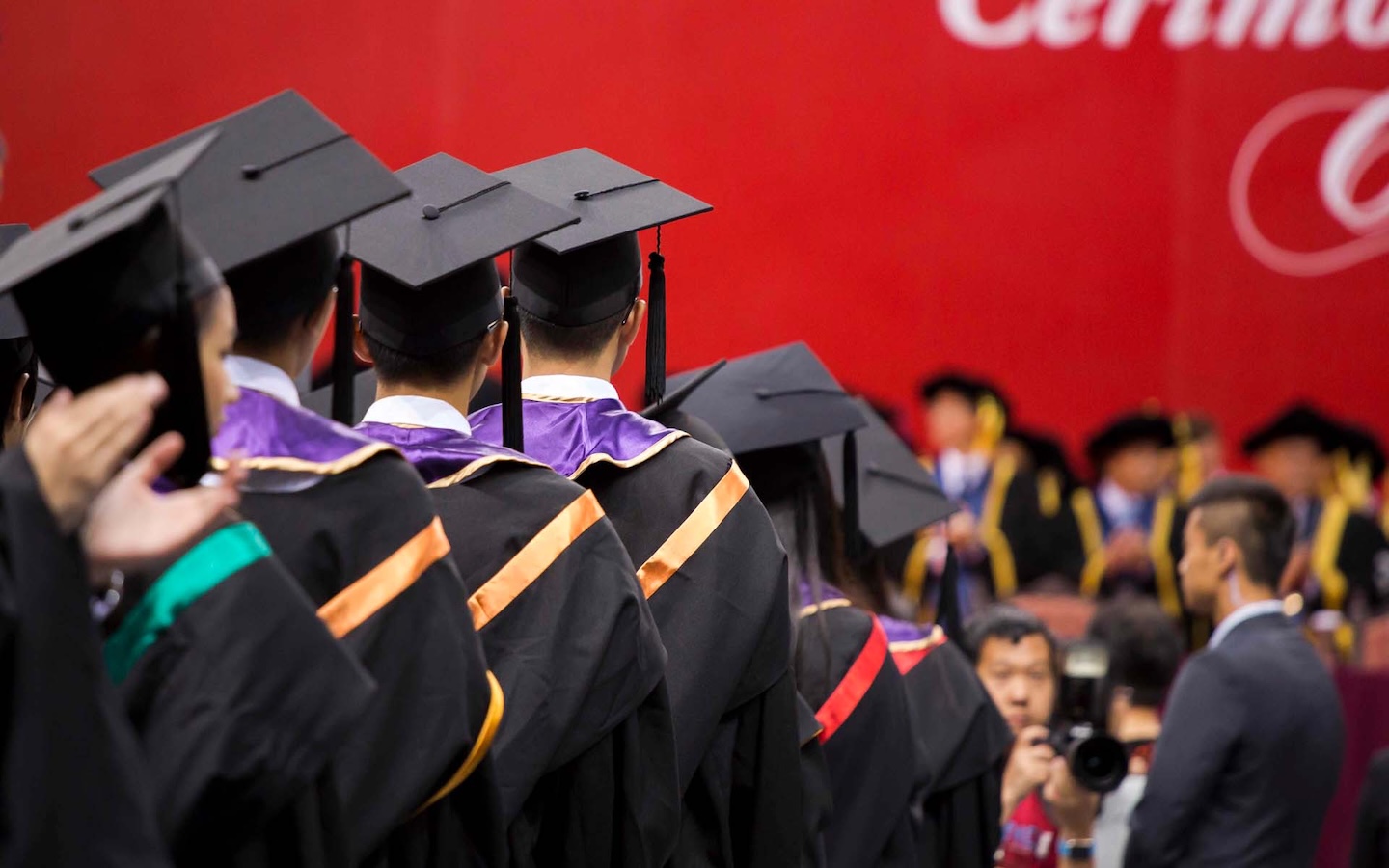At the end of April, the China (Guangdong) Free Trade Experimental Zone Zhuhai Hengqin New Area officially opened and Macao has a special place in it. It marks a further step in the integration of the Special Administrative Region (SAR) in China, 16 years after the handover.
On 21 April, Guangdong governor Zhu Xiaodan officially launched the Free Trade Zone (FTZ) in the province. It comprises 116 square kilometres in three areas − Nansha in Guangzhou, Qianhai and Shekou in Shenzhen and Hengqin in Zhuhai (with 28 square kilometres).
Two days later, the Hengqin New Area was formally launched, with an agreement between the SAR and Zhuhai governments to strengthen their cooperation and deepen ties in the district.
Hengqin Island has three times the land area of Macao and is 200 metres across a narrow stretch of water at the closest point.
The State Council designated it a special zone in April 2009. Since then, development has moved at a rapid pace. On its southern tip, the world’s biggest marine theme park opened in early 2014. In August that year, the University of Macau opened a new campus on an area of 1.09 square kilometres.
Hengqin’s inclusion in the Guangdong FTZ marks a new step in its development. According to the government, the Guangdong FTZ aims to offer more advanced cross-border collaboration with the Hong Kong and Macao financial and services industries and build an international integrated commercial service hub and shipping industry.
“We will let the services and trade industries of Hong Kong and Macao fully perform their role in Guangdong,” said Governor Zhu at the launch. “There are still many things to be done and problems to be resolved.”
Of the areas in Guangdong, the role of Hengqin is specially aimed at Macao, its companies and people.
Zhuhai-Macao
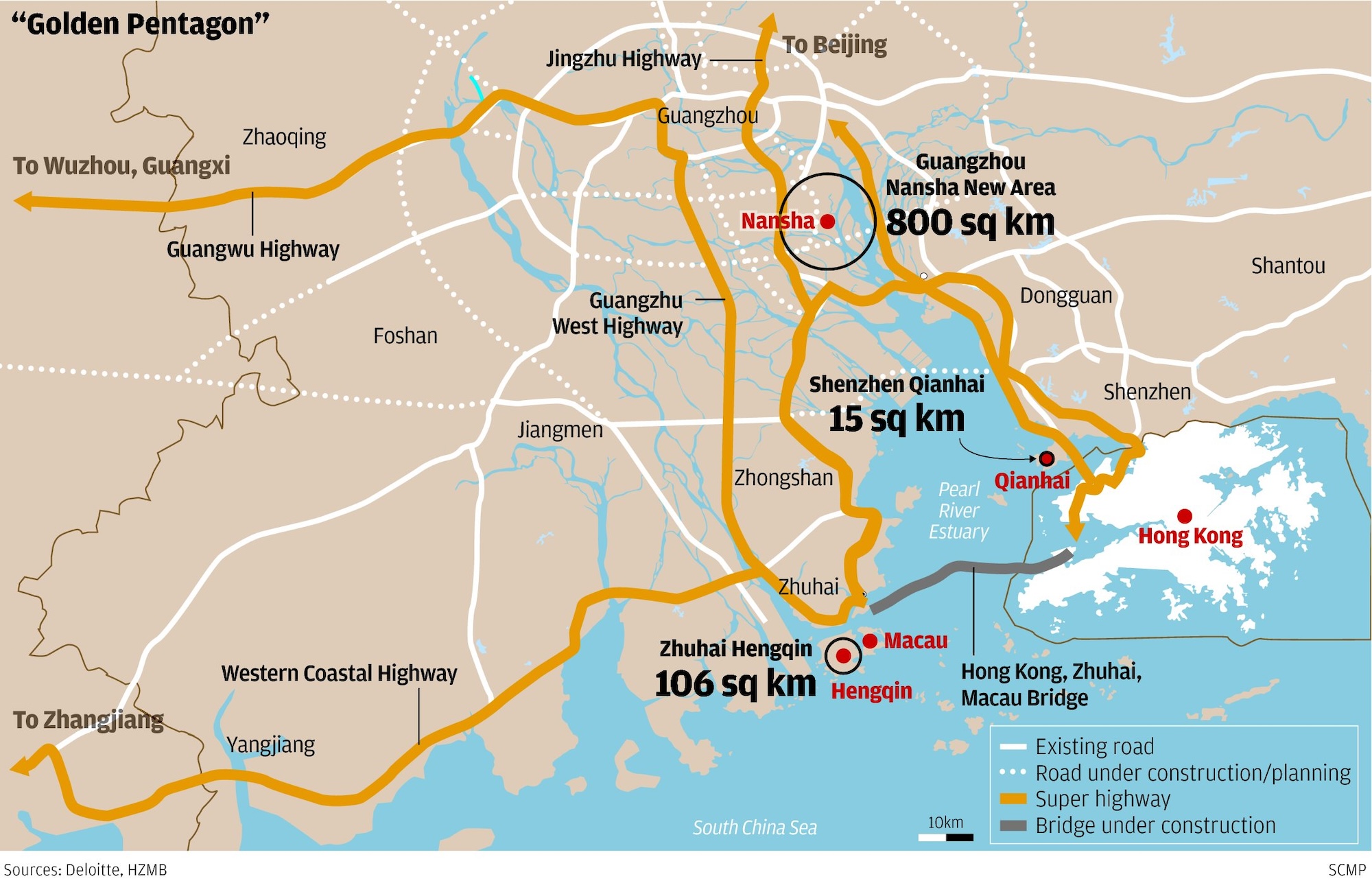
On 23 April, the governments of Zhuhai and Macao signed an agreement to deepen their cooperation in the New Area.
According to Macao Secretary for Economy and Finance, Leong Vai Tac, the areas of cooperation include legal affairs, investment and trade, education and health, boundary crossing checkpoint management, finance and innovation and cross-boundary infrastructure.
The agreement was signed by Leong and the Mayor of Zhuhai Jiang Ling after the unveiling of the New Area in Hengqin. Also present were the vice-chairman of the National Committee of the Chinese People’s Political Consultative Conference Ho Hau Wah, the deputy director of the Liaison Office of the Central People’s Government in Macao Yao Jian and the secretary of the Zhuhai Communist Party provincial committee Li Jia.
Speaking at the ceremony, Leong said the government would bring more opportunities to local enterprises and citizens in the development of trade and investment. He outlined six aspects for Guangdong-Macao cooperation − regular visits between Macao, Zhuhai and other parts of Guangdong province to better understand the country’s policies; legislative revision; further cooperation in the Guangdong-Macao Cooperation Industrial Park, especially the Guangdong-Macao Chinese Medicine Technology Park; an invitation to more local enterprises to take part in the New Area; provide more specific services to build the Hengqin Macao Youth Business Valley; and making best use of the cooperation mechanism to develop the New Area in Hengqin.
“Improved cooperation with Hengqin in commerce, tourism and cultural industries will also bring advantages to both sides in building a world centre for tourism and leisure and a commercial and trade cooperation service platform between China and the Portuguese-speaking countries, as per the strategic positions laid down by the Central Government on the future development of Macao.
“Macao can give play to its unique advantages and work with Hengqin to create a good business environment for the New Area while, at the same time, enhancing its own competitiveness,” Leong said.
“The government will make best use of the country’s initiatives in building the Silk Road Economic Belt and the 21st Century Maritime Silk Road (“Belt and Road”), as an effective way to enhance Macao’s competiveness,” he added.
In his speech at the opening ceremony, Niu Jing, director of the administrative committee of the Hengqin New Area said: “We hope to set up free trade channels with Brazil, Angola and Portugal through the platform of Macao.”
Hengqin will build a strong trading platform for commodities from Portuguese-speaking countries and regions by taking advantage of Macao’s international links and will simplify procedures to facilitate the export and import of Macao’s goods.
This will make it easier for international and Macao enterprises to explore the mainland market and encourage more Macao companies to invest in Hengqin.
Personnel exchanges between Zhuhai and Macao will increase as an entrepreneurship base will be built in Hengqin to encourage young people from Macao to start businesses there. The base, due to come into operation in June this year, will provide one-stop services for young Macao entrepreneurs, including company registration, opening of bank accounts and staff recruitment. They will be allowed to work at the base rent-free for at least a year.
Zhuhai Mayor Jiang Ling said that deepening cooperation with Macao and achieving integrated development were important tasks for the Hengqin New Area. “We hope to create an internationally competitive regional economy by strengthening collaboration with Macao,” he said.
“Without Macao, there would be no Zhuhai special economic zone nor the Hengqin New Area of today,” he said. “The assignation given by the central government to the New Area is to create conditions for the diversification of the Macao economy and deepen the integration of the two.
“We hope that, within the framework of one country, two systems, we can seek a new system of developing the service sector and bring Macao’s hospitals, retirement, residence and education services into Hengqin, which people from both sides can enjoy,” Jiang said. “We hope that, with Macao, we jointly utilise the New Area and make an even more competitive world tourism and leisure centre.”
The area is working on a policy to allow vehicles with Macao licence plates to drive in Hengqin freely. The drivers of these vehicles would be able to circulate in Hengqin but not enter the rest of Zhuhai, unless they had a mainland permit. Niu Jing said that this service would be available to Macao motorists by the end of 2015. He also said that yachts from Macao and Hong Kong could apply for the right of free entry to Hengqin, Qianhai and Nansha and that approval might be given by the end this year as well.
Niu also announced that Hengqin would set up an advisory committee to help with the construction and development of the New Area and that a large number of its members would be from Macao.
Another element of the New Area is an intellectual property court which Zhuhai has established to help those working in research and development. In its annual report, it said that, in 2014, it handled 1,080 cases, including 951 involving rights of ownership, 57 brands and 21 patents.
Free Trade Zones
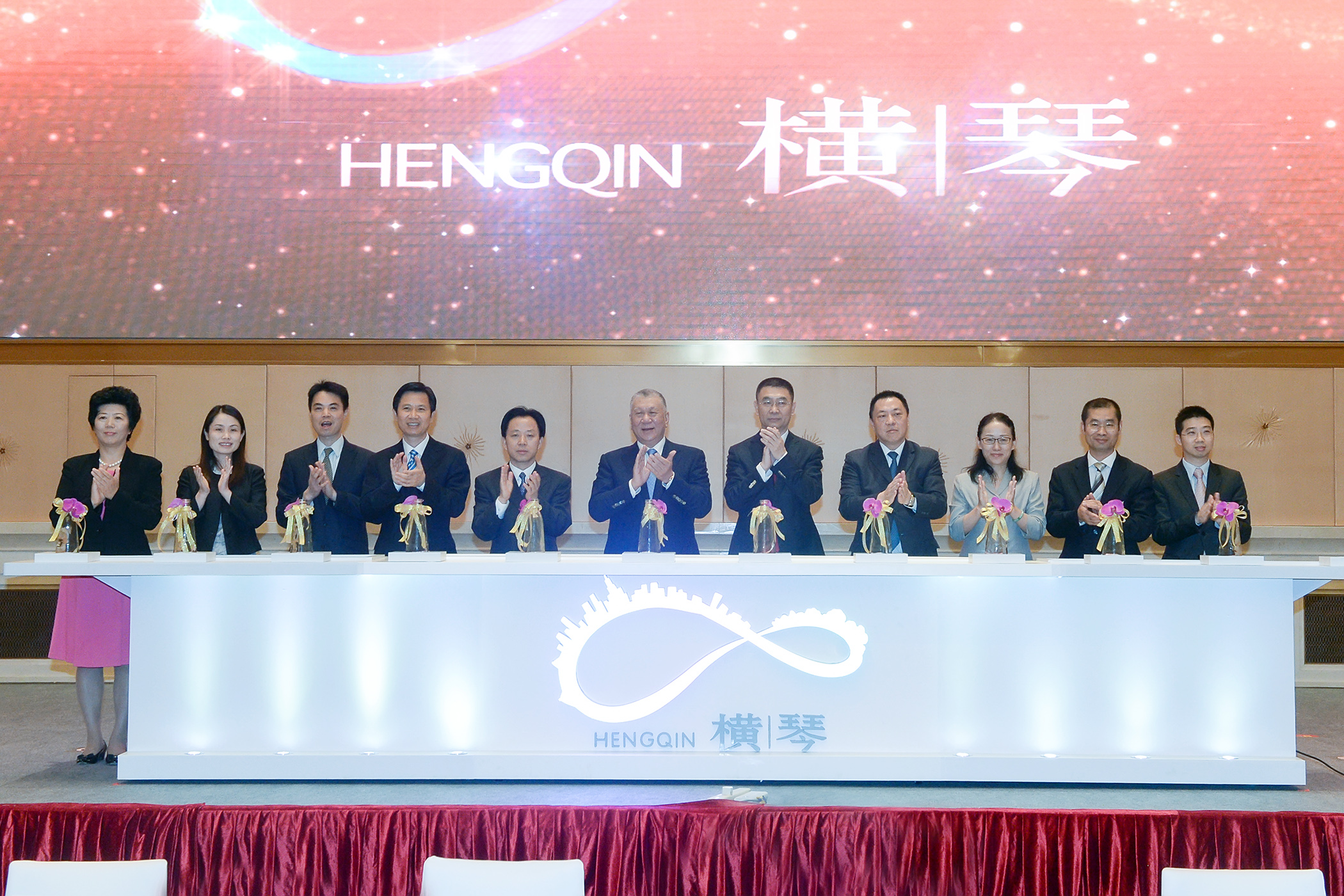
The FTZ, officially known as Pilot Free Trade Zones, are the latest stage of China’s reform and opening policy. They aim to offer a new degree of openness in foreign investment and international trade, in both trade and services, to promote and develop the national economy.
The first, in Shanghai, was officially launched on 29 September 2013. On 20 April this year, the State Council announced the plans for Pilot FTZs in Guangdong, Tianjin and Fujian. Hengqin is part of the Guangdong one.
Each part serves different functions and focuses on different business sectors. Nansha in Guangdong, for example, has 60 square kilometres and is focusing on transportation and logistics, the financial industry, international business and trading, and high-end manufacturing. Qianhai Shekou, with 28.2 square kilometres, focuses on the financial industry and modern logistics.
Hengqin is specialising in tourism, leisure and health care: business and financial services: culture, science and education: and high technology.
Rapid growth
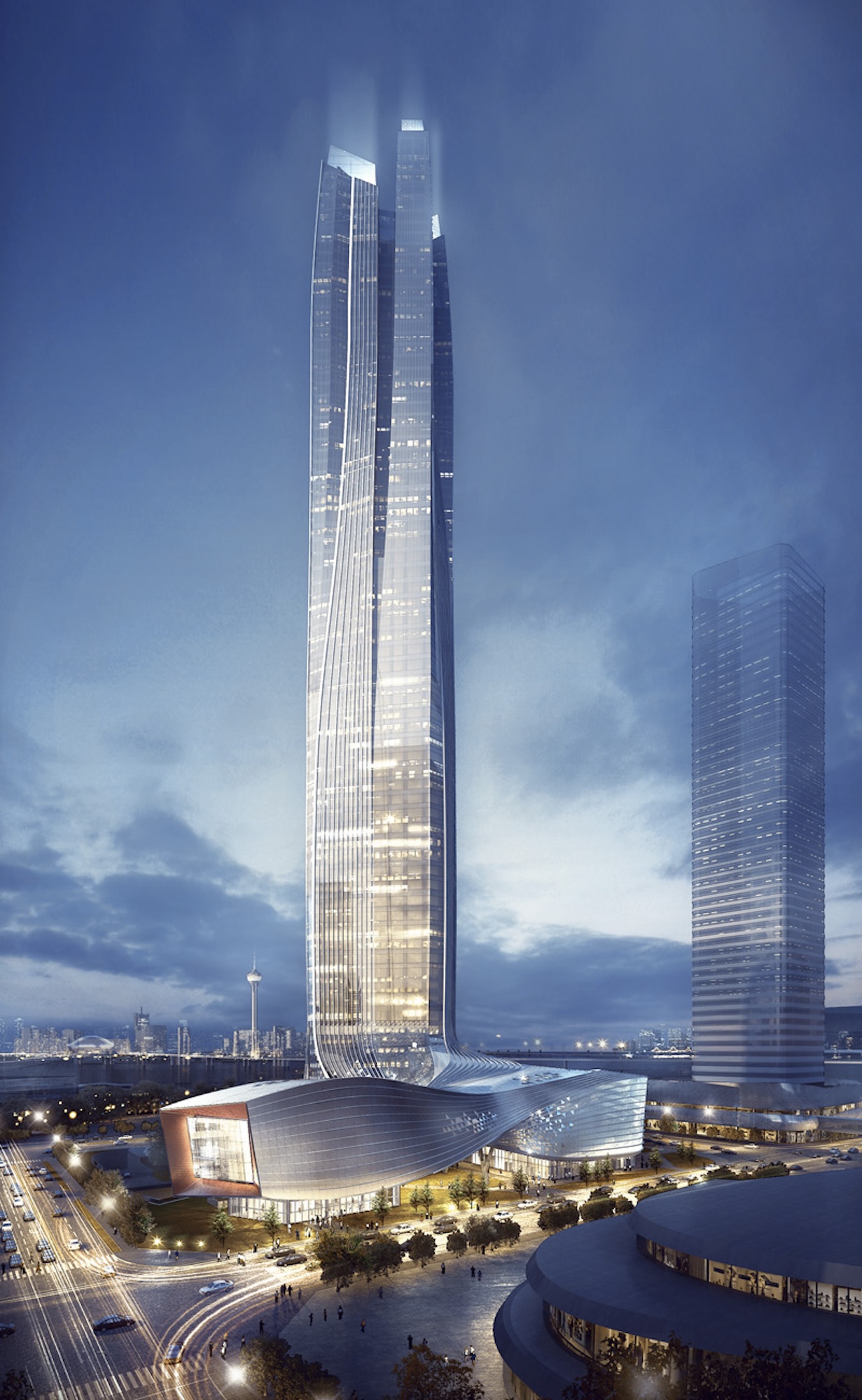
Since April 2009, the growth of Hengqin has been very rapid. The Chimelong Ocean Kingdom opened in early 2014 on an area of 132 hectares and is attracting thousands of visitors, domestic and foreign, every month.
The new campus of the University of Macau is 20 times larger than the previous one on Taipa and can accommodate 10,000 students, all living on site. The SAR government is paying 1.2 billion patacas for a 40-year lease.
On the northeast is the Shizimen Central Business District, with a total investment of 36 billion yuan. Office blocks have been built and China’s major banks have taken space in them. According to official figures, 8,477 firms have registered in Hengqin, including 407 from Hong Kong and Macao. The area has attracted 866 financial companies with total registered capital reaching 137 billion yuan ($22.1 billion). In March 2014 alone, 62 financial institutions established a presence in Hengqin, then 50 in April. In 2009, the district had one single bank. These institutions include banks, securities firms, insurance companies and money exchangers.
As of the end of 2014, 35 financial institutions from Macao and Hong Kong had set up there, managing a total of 850 billion yuan in funds.
Under preferential policies approved by the State Council in July 2011, financial institutions in Hengqin can set up offshore financial currency and trust funds and do currency conversions for individuals.
Hong Kong and Guangdong hope that, in Hengqin, their financial institutions will be able to do the same cross-border lending and cash pooling that is allowed in the Shanghai FTZ: this has helped facilitate yuan circulation and usage in the offshore market and made more foreign companies work in the Chinese currency – a further step toward its internationalisation.
Figures released by the Finance Bureau of Hengqin on 23 April said that the district’s budgetary revenue in 2014 was 2.668 billion yuan, an increase of 137 percent over 2013: fixed asset investment was 24.68 billion yuan, an increase of 67 percent: and GDP 5.807 billion yuan, an increase of 83 percent. Its GDP in 2009 was only 285 million yuan.
In addition to the new university campus, Macao has benefitted directly from Hengqin in several ways.
One is a Guangdong-Macao industrial zone, with an area of 4.5 square kilometres. The Macao government has proposed 33 projects in the park, with a total investment of 140 billion yuan. It has asked for a further 10 square kilometres, which will have to be reclaimed from the sea.
Another is property that is less than half the price of that in Macao. With the 24-hour opening of the border gate on 20 November last year, citizens of Macao can buy apartments in Hengqin and go easily to and fro across the border. They are among the main clients for developments, especially those close to the border gate.
The opening is also a blessing for the more than 70,000 migrant workers in Macao who are even less able than local residents to buy property in the city; most live in cramped apartments and dormitories. They or their employers can rent space for them to live in Hengqin; it should be cheaper and more spacious.
The SAR government is also considering the purchase of land in Hengqin to build medical clinics, nurseries and retirement homes.
Alexis Tam Chon Weng, Secretary for Social Affairs and Culture, said in mid-April that the acquisition of land for such purposes depended on the central government. “We have met with the Hengqin authorities and they are open to this idea and have been collaborative,” he told the Legislative Assembly.
“We need to buy the land in Hengqin for our purposes but we need the approval of the central government… Private institutions may use the services in Hengqin once the government acquires the land. These institutions would be chosen through public tender,” he said.
The Macao government is generous to those who hold permanent- residence (PR) cards, providing them with free education, free treatment at public hospitals and pensions and other welfare payments to retired people. It also gives educational allowances to its students who are attending primary and secondary schools in Zhuhai, Zhongshan and Jiangmen.
If all these payments could be made to its PRs resident in Hengqin and other places in Guangdong, it would make them more attractive. But this will require an agreement between the two sides because of their two different legal and administrative systems.
